- Home
- Dornford Yates
Valerie French (1923) Page 5
Valerie French (1923) Read online
Page 5
"Didn't I tell you," he said, "never to help anyone?"
"You did, sir."
"Then why the devil d'you do it?"
Jonathan shrugged his shoulders.
"I suppose I forgot, sir."
"Don't lie to me," snapped the other. "You’d do it again to-morrow. You know you would. And next time I shan't be by, to pull you out of the fire. I wouldn't have done it to-day, if I'd thought twice. And turn that dog round. I don't like his ugly face."
Obediently Jonathan reversed the Sealyham.
"I should like to— "
"Ugh! He's still looking at me, the brute. Put him down, can't you?"
Placed upon the floor, Hamlet advanced upon Sir Andrew and, fixing his eyes upon him, sat up and begged.
The K.C. covered his face.
"I have to thank you, sir," said Jonathan, subduing a smile, "for a most handsome action. But for your generous— "
"That'll do. I enjoyed myself. Besides, I've a weakness for seeing justice done." He plucked a case from his pocket and pulled out some notes. "Here's twenty pounds. Don't go and drink it. If you aren't on your feet again by the time that's finished, you ought to be flogged."
Jonathan stared at the money with saucer eyes.
"Take it, you fool, take it. I'm not going to hold it all day."
Jonathan took the notes with trembling fingers.
"You're very kind, sir," he stammered. "Of course I'll pay you back."
"As you please," jerked the other, and fell a-whistling. "Good-bye."
Jonathan could hardly believe his ears. The interview, which was to be so memorable, was at an end. His fortune had not been told.... It occurred to him in a flash that he must be a very black sheep— a family skeleton, in fact. Recalling Sir Andrew's charge, he began to wonder if liquor had been his downfall....
For a moment he hesitated. Then he turned dully away....
Arrived at the door, he swung round.
"Tell me one thing," he said quietly. "Who was my father?"
Sir Andrew stared at him.
"How the devil should I know?"
Jonathan put a hand to his head.
"But you were at school with him. You must have known him well to be my godfa— "
The other leapt to his feet, kicking over a chair.
"Is this blackmail?" he demanded.
"'Blackmail'?" echoed Jonathan. "Blackmail?"
"Because," said Sir Andrew, advancing, "because, if it is..."
The cold, deliberate tone was more terrible than any rage. The countenance had lost its grossness and become a grim mask. The keen blue eyes had narrowed to mere points of steel.
Jonathan felt as though he had crossed a king.
Then—
"I may be a waster," he said, "but I've not sunk so low as that." He threw the notes on the floor between the two of them. "I'm deep enough in your debt. I suppose I've given you cause to think this vile thing of me, though why, if I have, you didn't spare your talent this afternoon, I fail to see."
With that, he called the dog and turned again to the door.
"Stop!" Jonathan stood still. "Why on earth did you ask me your father's name?"
"Because you know it, and I do not."
"Why should I know it?"
Jonathan wheeled about.
"Two hours ago you stated in Court— "
Sir Andrew waved his arms.
"Lies, you fool. All lies." The other recoiled. "I had to say something to shake those Justices up. Up to that moment I hadn't a rag of a case."
Jonathan stared and stared. Then he leaned against the wall and began to laugh....
After a long look at him, Sir Andrew returned to his chairs. Sitting down, he proceeded, snorting, to mop his face.
"There's something wrong with you," he burst out suddenly. "What is it?"
"This," said Jonathan weakly. "I've lost my memory."
He told his tale there and then. The eminent lawyer listened with closed eyes. When the recital was over—
"And what," he demanded, "do you propose to do?"
Jonathan shrugged his shoulders.
"Work," he said simply. "At least, I've one recommendation. I've got a clean sheet."
"You haven't a sheet at all," snapped Sir Andrew. "And that's what'll lay you low. That and your cursed folly of helping fools."
"If I'm believed when I say— "
"Would you believe such a tale?"
"I would," said Jonathan.
Sir Andrew let out a squeal, as though suddenly stung, and Hamlet, considerably startled, began to bark.
"I knew it," yelled Plague. "I knew it. In spite of all I've said, you’d help the liar that told it." He turned upon Hamlet with a roar. "Stop it, you venomous swine! Don't yap at me." He snatched The Times from the floor and flung himself back in his seat. "What of your friends?" he demanded.
"I don't even know if I have any, much less who they are."
"You can make inquiries."
"I think that's for them to do. They've something to go on. I haven't. Besides, I've got to live."
"In fact, you're content as you are?"
"Perfectly. The past has been taken from me. I don't want it back."
"You may be a millionaire."
Jonathan smiled.
"Felicitate me," he said, "upon my release."
A ghost of a grin stole into the great red face....
Then, as though to obliterate the impression that he knew how to smile, the giant snorted like a wild beast and beat and wrung The Times into the shape he desired.
For a moment his eyes were scanning a column of print. Then—
"There's a fool's advertisement here," he announced, "for a secretary. I happen to know the fool. If you like to offer yourself, I'll get you the job."
Jonathan hesitated.
"D'you think I could give satisfaction? I don't want to let your friend down. You see, I've no idea of what I can do."
"Fools go with fools." Sir Andrew dabbed at the paragraph. "You'll suit him admirably." He nodded at pen and ink. "Write a reply now, and I'll take it to Town."
Jonathan did as he was bid.
The Yew Tree,
Ruby Green.
August 5th.
SIR,
In reply to your advertisement, appearing in to-day's issue of The Times, I beg to apply for the post you are seeking to fill.
An interview will better enable you to appraise such qualifications as I may have, so, if you entertain this application, will you be good enough to write to me c/o The Poste Restante, Oxford, giving me an appointment?
I am, Sir,
Your obedient servant,
JONATHAN WOOD.
He addressed the letter to the Box, and, rising, humbly offered it to Plague for his inspection.
The latter read it carefully.
"You've told me a pretty tale," he said, without raising his eyes. "As I've tried to point out, not one in a million fools would ever believe you. A sudden loss of memory's too convenient."
Jonathan nodded.
"I see that now," he said slowly. "I realize that. I shall always proudly remember that you believed what I said."
"'M not sure that I do," grunted Plague. "An' now take up that money you flung in my face. Those clothes won't win an appointment, and there's your fare to Town. You'll have to get rid of that beastly dog, you know."
Jonathan started. A finger flew to his lip.
"Hamlet!" he breathed. "Hamlet! I quite forgot."
A touch made him look down. It was the terrier's 'Adsum.'
One paw raised, his soft, brown eyes alight with eagerness, the dog was awaiting his bidding with a heart no wages can buy. As their eyes met, his tail began to move to and fro. Surely never squire so hung upon the lips of his lord....
Jonathan stooped and patted the small rough head.
"Perhaps they’d let me keep him," he said lamely. "We're rather friends."
"You're mad," said Plague shortly. "The advertise
ment asks for a man, not a menagerie."
Jonathan straightened his back.
"I can't give him up," he said.
Sir Andrew Plague rose and clawed at the air.
"You blithering fool!" he roared. "It's the dog or the post."
"I choose the dog," said Jonathan quietly enough.
With a fearful effort, the other mastered his voice.
"So," he said hoarsely. "Vagabonds and rogues hang together. Well, I'll keep my word. I'll send your letter along. If you like to cut your own throat, that's your affair."
"I'm afraid you think me ungrateful."
"Never mind what I think," snarled Plague. "But learn of me. Never help anyone." He turned on his heel. "And now go," he added. "I'm tired of fools."
Jonathan went.
ON THE MORNING of August the eighth he was given a letter.
He thrust this into his pocket and left the Post Office. Crossing St. Aldate's, he passed into the meadows....
Presently pacing that majestic nave— that peerless robing-room where youth, panting, barelegged and thoughtless, unconsciously puts on the magic mantle of Tradition to his own use for ever, Jonathan drew out the letter and turned it about meditatively.
Blithely Hamlet preceded him, going upon three legs— indisputable evidence of his approval of The Broad Walk. Abstractedly his master watched him.... After a little while he shook his head.
"I can't give him up," he said shortly. "It's out of the question."
With that, he ripped open the envelope.
45 Kensington Palace Gardens, W.
August 6th.
SIR,
We have had our interview.
I am satisfied that you are stubborn, sentimental, and credulous— three most abominable failings.
Upon the understanding that you will correct your behaviour in these respects, you may become my secretary at a salary of five hundred pounds a year.
Yours faithfully,
ANDREW PLAGUE.
Jonathan Wood, Esq.
P.S.— Acknowledge this letter and be here in three days' time. I have told the steward that your dog will eat sausage-rolls. If this diet is wrong, you had better instruct him direct.
3: Figs Of Thistles
HERE IS A LETTER, sirs, out of a Cardinal's bag. His Eminence will not mind my setting it forth. I am a privileged person, like the King's jester.
Villa Narcisse, Dinard.
August 3d.
DEAR UNCLE JOHN,
It seems impossible that it is not yet one year since I wrote to tell you that I was in love with a footman. I remember writing so well. Just as in another year's time I shall remember writing this letter, which is to tell you— not that Anthony is dead, because you know that, or that I still love him, because you know that too, but that I am sane again and that the power of caring has come back. Of course my occupation is gone. I have not the slightest idea what to do. But I must and mean to do something— take some action of some sort, and that is more than I could say a week ago.
It is, in fact, just five days since I fell in with a girl— a complete stranger— who was unhappy, too. Her trouble was that she was in love with my darling. She had no idea, of course.... I don't think she knew he was dead. But she had been very hard hit, and— the clouds had returned after the rain.
I have stated the truth baldly. I do not feel able to comment. It is too big. Truly Fate is an amazing thing. Out of the millions of women— surplus women, Uncle John, of whom your niece is now one— this girl, a Miss Strongi'th'arm, selects me for her peculiar confidence.... I owe her a debt. When I heard her mourning Anthony, it set my heart going again, and I was able to cry.
I think that's all my news, but I’d like your advice.
Tell me about the dead. Can they take part in our lives, assuming they want to? Or are we too small fry? I mean, Death's really a promotion, isn't it? One's given a better brain. New lenses are fitted to our understanding, aren't they? Immensely more powerful. 'Now we see through a glass, darkly....' Well, when those lenses have been fitted, how will this old life look? Shall we be able to see it at all? Or will it be out of focus— beneath contempt?
You see what I'm driving at. I not only want Anthony— I need him. His is the only presence that can help me to stand his loss. I can't realize that he's dead— yet. But I shall soon. And I want his shoulder to lean on— the hem of his garment to clutch at when that realization comes. It's like a wave approaching: already I can see its crest. If I could feel that he saw, felt, understood, perhaps even loved me, looking down from his peak, I think I’d be able to breast this terrible wave— I think I’d feel less famished than I do. I tell you I'm just starving. And Memory's bitter fare— very bitter...
Now that I've written all this, I see I've wasted our time. You can give me only one answer. It would be brutal to give me any other. Besides, you can only guess. You may be a Cardinal, but you're still alive and so as blind as all the rest of us. Your fine red hat was made in a tailor's shop, probably by sweated labour. The point is, it's a hat, not a halo.
No. I may have wasted your time, and I'm sorry for that: but I haven't wasted my own. I feel better for having got rid of all this sob-stuff. For that's all it is.
I am so glad you knew him— so awfully glad. He was so splendid, wasn't he?
Your loving
VALERIE.
P.S.— I'll write again when I'm through this phase. I leave for London to-morrow, without Aunt Harriet. I won't let her come. I’d like to go to Bell Hammer, but I can't stand that ... yet. I suppose you know he left me every penny. Which means that, with what I already had, I must be worth considerably over a million. Isn't that nice?
Yes, I know. But you must admit I've a lot to make me bitter.
Valerie French, spinster, was as good as her word. Ere her letter had reached Rome, she and her maid had lain one night in London.
The following morning she left for the Cotswold Hills.
The impulse which drove her to Girdle was natural enough. It was, indeed, with the idea of visiting Lyveden's grave that she had left Dinard. She, wanted to see where he rested, desperately. More. She was most pitifully thankful for an object in life. Never pilgrim journeyed to Canterbury one half so undistractedly. The girl had no need of tales to beguile the way. This was all too short. Had her shrine stood in the Antarctic Zone, she would have praised God. Once she found herself wondering what pilgrims do when they have made their pilgrimage. One heard of their going. Whoever heard of their return? Upon that point even Chaucer had broken down.... Clearly the return was empty, flat— an appalling anticlimax. For one thing, of course, they were no longer pilgrims. A frightened look came into Valerie's eyes. To-morrow her pilgrimage would end ... to-morrow. And after that ... She was only twenty-six. Supposing she lived to be seventy.... She brushed the thought away and pictured her shrine anew.
This was much what she had figured— a low, green barrow, seamed across and across, where the late-cut turf had not healed. Valerie was directed to it by a mumbling sexton. She hardly heard what he said and forgot him, so soon as he had spoken, as one forgets a finger-post. The truth is, the girl was overwhelmed. She had hoped so hard that Anthony might lie in a pleasant place: she had never dared to dream that he was buried in a King's Corner.
The Abbey Church of Girdle stands a mile from the village in a most lovely yard. Its day is over, of course. The town it was built to serve has disappeared. Each Sunday a handful of worshippers plod resolutely to Matins, stare for an hour uncomfortably about their heritage, and go their way. Occasionally strangers appear, to glory in the flying buttresses, marvel at the fan-tracery above the choir, and swear the altar-screen an anthem wrung out of stone. For the rest, the great church sleeps, stately and exquisite, amid its whispering elms. As for its ancient retinue, with one superb exception, this is clean gone. Only the footings are left, to turn the shadowy plot into a close. One gentle spokesman of another age remains. There by the south-east corner three lovely arches
tell where the cloisters ran. With these the afternoon sun will print three matchless windows upon a little greensward. There is only one grave there yet. And that lies under the silver birch— a low, green barrow, seamed across and across....
After a long half-hour Valerie rose to her feet and sought the sexton. Ten minutes later she rang the Vicarage bell.
Here we are upon the edge of three several interviews, all of which were painful and are relevant. Two, as you shall see, may be swallowed whole; but the third must be chewed. Bear with me, sirs. He who would gather grapes of thorns must at least pick over the brambles.
The first interview— between Miss French and the Vicar of Girdle— took place at a quarter to one. It was distressing, as was the second, because the Reverend Simon Barley was not a lady's man. Moreover, he suffered, poor fellow, from St. Vitus's Dance and was acutely conscious of his infirmity. Both parties were very thankful when it was over.
The second— between Miss Strongi'th'arm and the Vicar of Girdle— took place at two o'clock. This ended abruptly with the slam of a door and left the unfortunate priest a nervous wreck.
The third— between Miss French and Miss Strongi'th'arm— took place at two-fifteen.
Valerie had lunched at Girdle and had returned on foot to the churchyard. Thither her car was to follow at half-past three.
The poor girl was almost cheerful. She had won sanctuary. Sitting on the turf of the cloister, marking the bulwarks of the grey old church, she found an ease of spirit she had not known for months. The old steady look began to steal into her eyes. The atmosphere of the place was ministering to her mind. Viewed from this belvedere, the scenery of Life became less desolate. Far in the distance stood peaks, which the sun was touching....
Valerie took off her hat and, leaning her back against its delicate trunk, stared at the hanging garden which the silver birch made.
A footfall made her look down.
"You?"
Framed in one of the archways, Miss Strongi'th'arm was regarding her with burning eyes.
"You?" blazed André again. "What are you doing here?"
For a moment Valerie gravely returned her gaze. Then she rose and came forward.

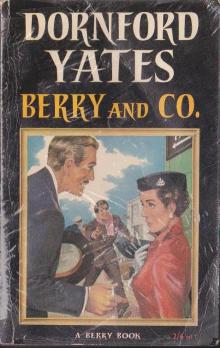 Berry and Co.
Berry and Co.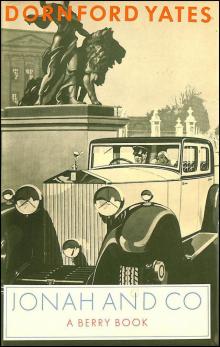 Jonah and Co.
Jonah and Co.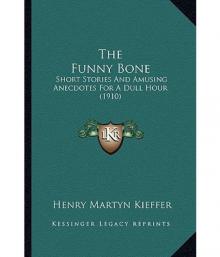 The Funny Bone: Short Stories and Amusing Anecdotes for a Dull Hour
The Funny Bone: Short Stories and Amusing Anecdotes for a Dull Hour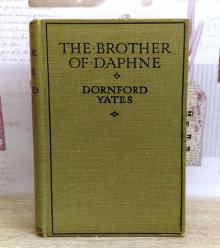 The Brother of Daphne
The Brother of Daphne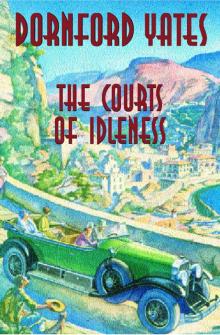 Courts of Idleness
Courts of Idleness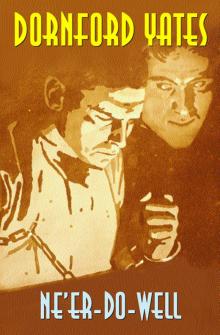 Ne'er Do Well
Ne'er Do Well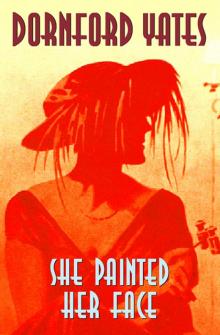 She Painted Her Face
She Painted Her Face Safe Custody and Laughing Bacchante
Safe Custody and Laughing Bacchante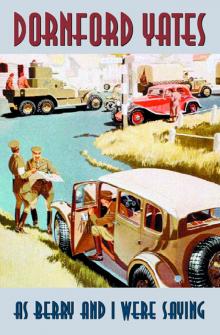 As Berry and I Were Saying
As Berry and I Were Saying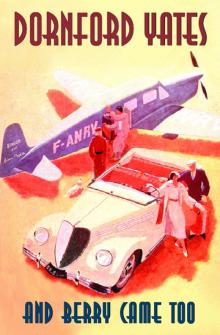 And Berry Came Too
And Berry Came Too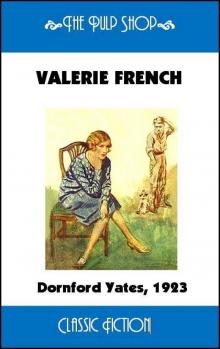 Valerie French (1923)
Valerie French (1923)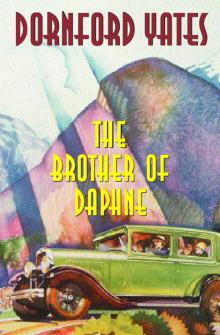 Brother of Daphne
Brother of Daphne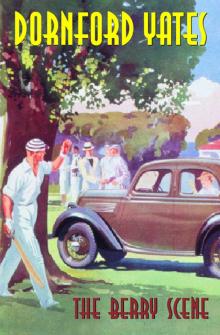 Berry Scene
Berry Scene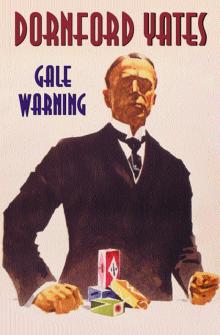 Gale Warning
Gale Warning B-Berry and I Look Back
B-Berry and I Look Back Storm Music (1934)
Storm Music (1934)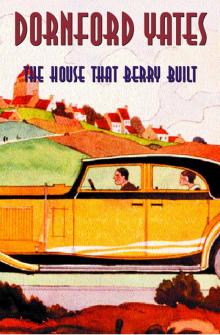 House That Berry Built
House That Berry Built